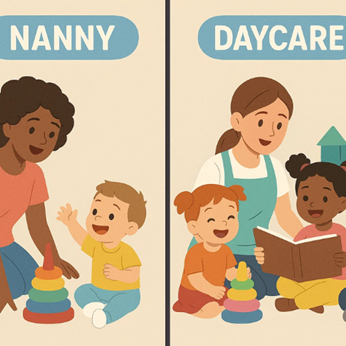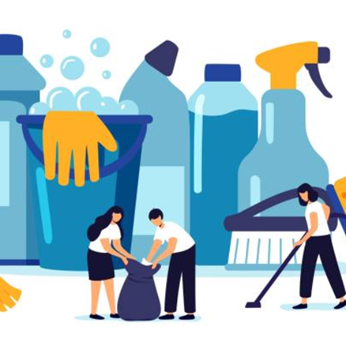Know About Diabetes In Elders
Diabetes in elders has increased in recent times; this serious disease with high level of blood sugar could cause various dangerous health conditions, affecting the eyes, kidney and nerves and causing heart disease, strokes and amputation of a limb. However high level of glucose in the blood can be controlled to prevent or delay further problems.
It is best to understand that diabetes runs in families, with overweight and sedentary life being main causes for diabetes. The glucose converted from the food we eat travels through the blood stream to feed our cells, with the hormone insulin helping to produce energy. Either the lack of insulin or its improper use could lead to diabetes.
Diabetes leads to symptoms like being tired, being hungry and excessively thirsty. It could also lead to excess and frequent urination and loss of weight. Diabetics could have skin infections or slowly healing cuts and bruises. However these symptoms can be controlled by lowering blood glucose, blood pressure and cholesterol.
Diabetes is of 2 types namely Type 1 or juvenile-onset diabetes that affects mostly children, teenagers and adults below the age of 30 and Type 2 diabetes or adult onset diabetes that affects elders above the age of 40. Type 1 diabetics need to take insulin regularly, while Type 2 diabetes arises out of underutilization of the produced insulin.
Type 2 diabetes is linked to obesity, lack of activity, family history of diabetes, and family background. Those at a higher risk to this type of diabetes include African Americans, Hispanic/Latino Americans, American Indians, and some Asian Americans and Pacific Islanders.
In addition we have a condition that is known as pre-diabetes, when the level of glucose in the blood is higher than normal, but not high enough to be classified as diabetes. Those with pre-diabetes carry an increased risk for Type 2 diabetes, heart disease and stroke; they need to lose weight and lead an active life to delay or prevent Type 2 diabetes.
Diabetes can be controlled by:
The key to managing blood glucose, blood pressure and cholesterol is by meal planning and eating right with understanding how different foods affect glucose level. Health care professionals can help create a personalized meal plan.
Physical activity with taking part in a regular fitness program would help control blood glucose levels in the elderly; your doctor or health care professional would be able to work out the right program for you.
Medications play a vital role for control of diabetes; doctors may prescribe oral medicines, insulin or a combination of the two. Some may require no medication after their glucose, blood pressure and cholesterol are in control.
Diabetics should have a yearly eye exam to detect and treat eye problems early and prevent more serious conditions.
A yearly urine test for a protein called albumin is necessary to detect if the kidneys are affected by diabetes.
Diabetes can reduce blood supply to arms and legs and cause numbness in the feet. Watch out for redness or patches of heat, sores, blisters, breaks in the skin, infections, or build-up of calluses every day on the feet and consult a podiatrist if necessary.

Elders with diabetes should protect their skin by keeping it clean, using skin softeners to treat dryness, and taking care of minor cuts and bruises to prevent infections and other problems.
Elders should work closely with a dentist and pay special care to teeth and gums to avoid serious infections.
Elders should have a yearly flu shot and a pneumonia vaccine; if more than 5 years have passed, you should consult your doctor to be revaccinated.
Take the next step toward your goals
Share your requirement and find the best care providers in your area
-
Looking for a caretaker’s job? Build your profile and get in touch with families in your vicinity.
-
Discover nannies, babysitters, cooks, housekeepers, pet sitters, and elder care under one roof.
-
Get all the support you need to run a successful care center.
-
Search for appropriate centers near you depending on your needs.
Care Corner Insights: Blog Library

Nanny vs. Daycare in Naperville, IL: What Works Best for Indian Working Couples?
Hey Naperville Parents! Balancing work and family life is no small feat—especially for Indian working couples trying to juggle careers, household responsibilities, and parenting. One of the biggest decisions you’ll face? Choosing between a nanny or

Housekeepers in Sugar Land, TX: Deep-Cleaning Checklists for Indian Homes
Housekeepers in Sugar Land, TX: Deep-Cleaning Checklists for Indian Homes Indian cooking = flavor + spices + love… but also oil splatters and stubborn stains. Time to reset! Degrease stovetops, chimneys, and exhaust fans. Scrub countertops, tiles,

12 Easy After-School Snack Ideas for Kids Who Get Hungry Quickly
School’s out, and the hunger hits hard! If your little ones come home ravenous and ready to raid the kitchen, you’re not alone. After-school snack time is prime time for refueling, recharging, and maybe even sneaking in a little nutrition. So here ar

Vegetarian Home Cook Services in Sunnyvale, CA: North & South Indian Meal Prep for Busy NRIs
Between work, family, and daily responsibilities, finding time to cook fresh meals can be difficult. That’s when a vegetarian home cook service in Sunnyvale makes life easier—bringing authentic North and South Indian dishes straight to your table. T

Hiring a Live-In Nanny in Plano, TX: A Practical Guide for NRI Households
For NRI families living in Plano, TX, raising children while managing work and household responsibilities can feel overwhelming. Many parents find that hiring a live-in nanny provides the right balance of support, convenience, and cultural comfort. U

Daycares in Fremont, CA for Indian Toddlers: Curriculum, Food Policies & Waitlists
You’ve probably met them — the parents at the park chatting about Montessori vs. play-based learning while handing their toddler a homemade paratha. The ones who ask every daycare in Fremont if they serve vegetarian meals. And yes, the ones who have

Babysitters in Jersey City, NJ for NRI Parents: Last-Minute, Weekend & Evening Options
You’ve probably seen them — the parents juggling grocery bags in one hand and a phone call to grandma in India in the other, while trying to keep their toddler from running into the road. The ones who cancel dinner plans because the babysitter bailed

Best Nanny Services in Edison, NJ for Indian Families: Costs, Language, and Cultural Fit
Edison, NJ, is home to one of the largest Indian communities in the U.S., and finding a nanny here often means looking for more than just childcare skills. For Indian families, cultural understanding, language fluency, and traditional values play a b

What Is Helicopter Parenting? How It Affects Children and Ways to Avoid It
You’ve probably seen them. The parents at the playground who shadow every move, wiping invisible germs off the slide before their child touches it. The ones who fill out job applications for their teens. And yes, the ones who email college professors

Are Weighted Blankets Safe for Children? Pros and Cons Explained
Weighted blankets have become a cozy trend in recent years. From helping adults sleep better to calming anxiety, they’ve earned a spot in many households. But when it comes to kids, especially the little ones, parents often ask: Are weighted blankets